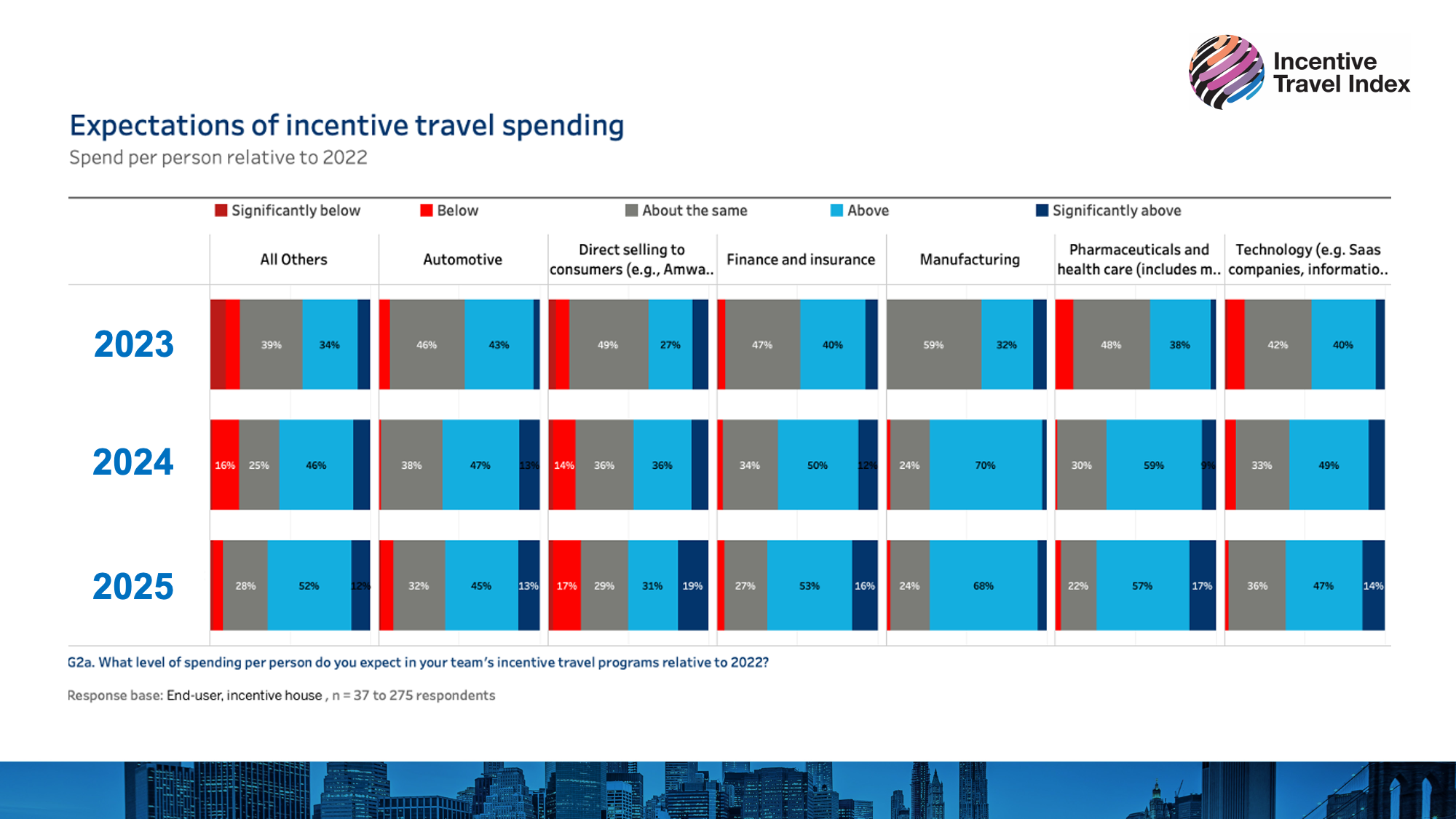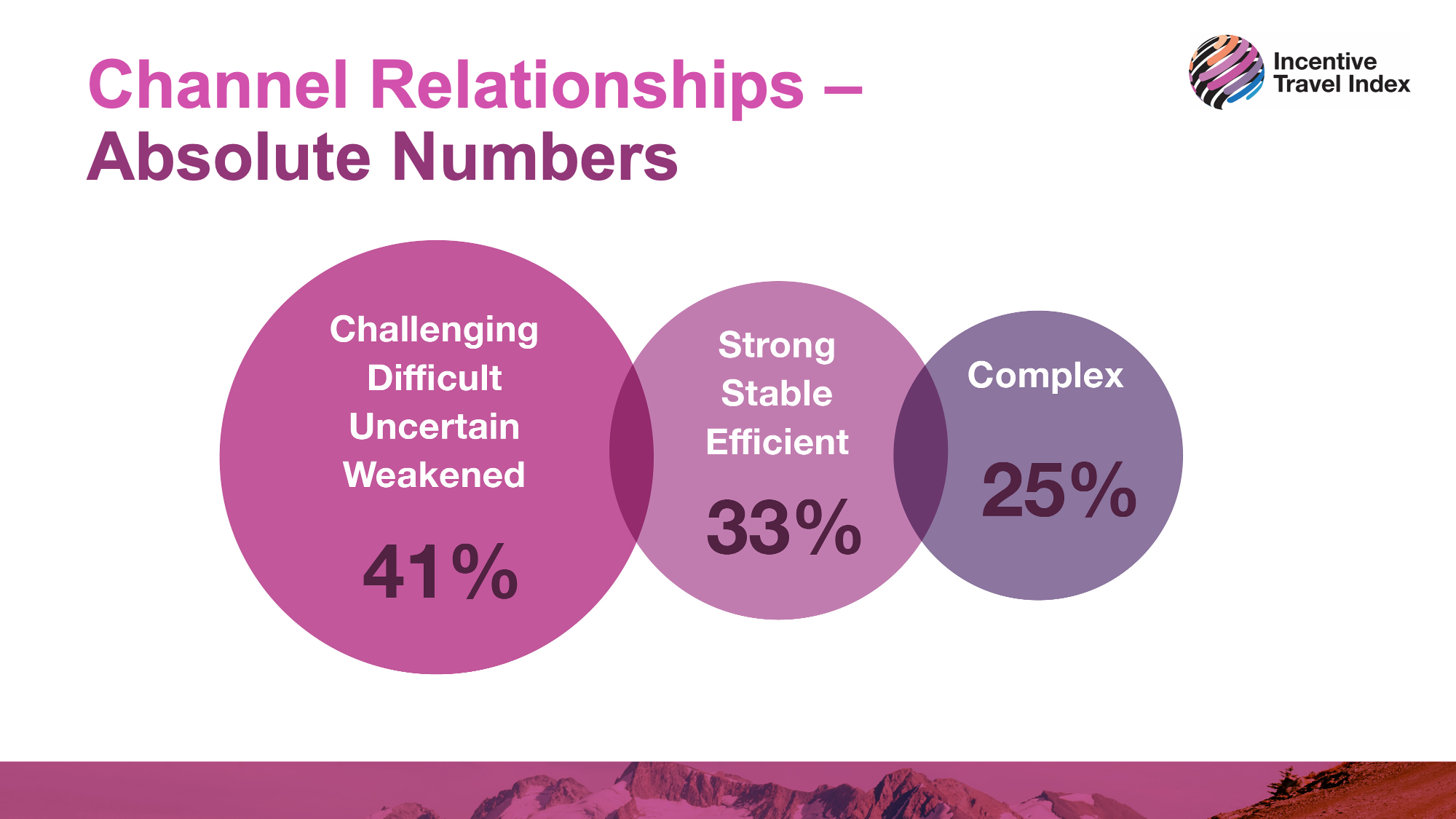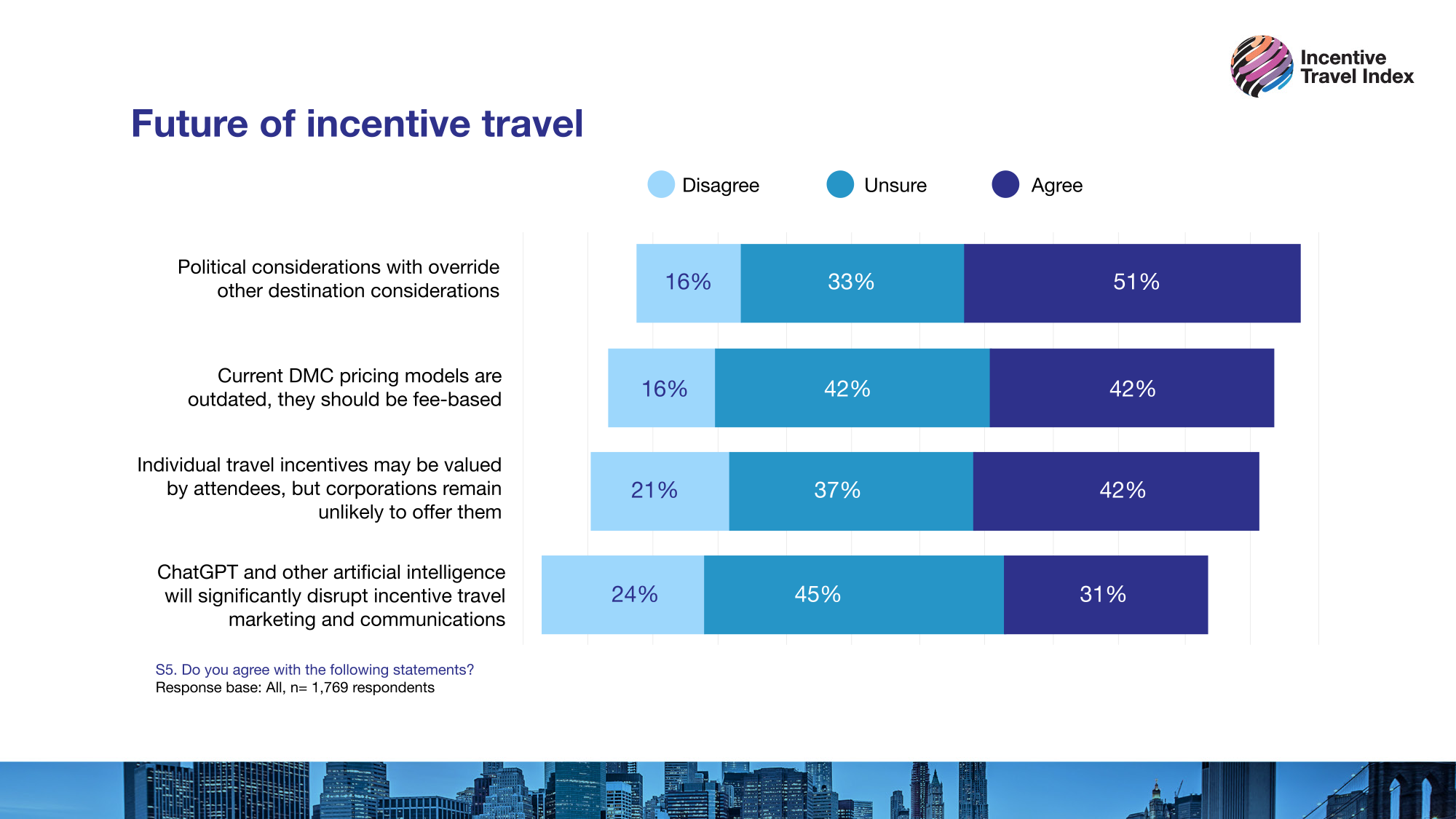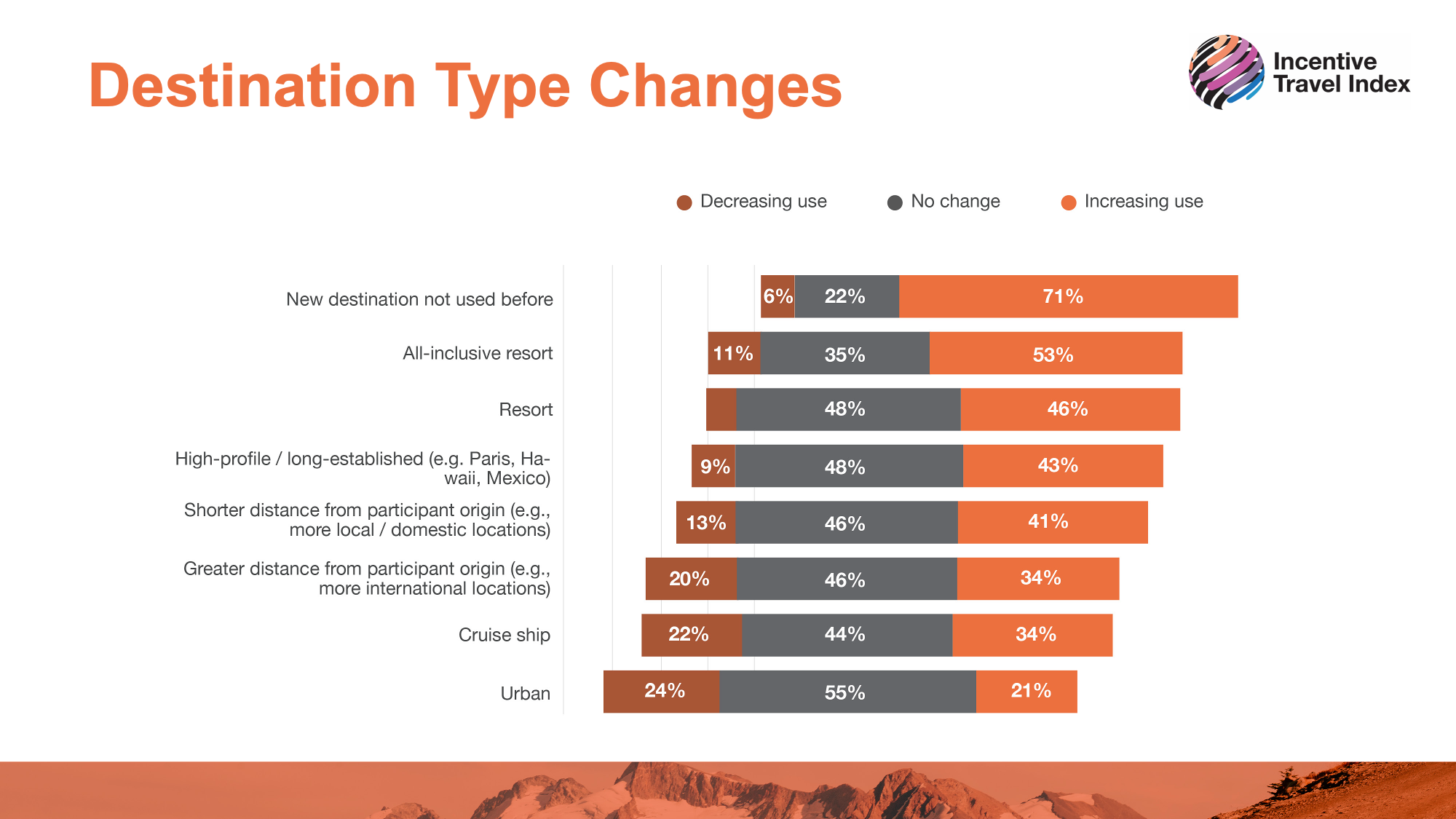Natalie Fulton from Tourism New Zealand said that this is where DMOs like hers shine, when they step in as an “honest broker” that can help both sides navigate challenges and build positive working relationships.
Igniting the chat box during this section of the webinar too were audience debates about whether people are simply less willing to pick up the phone and have to smooth some of these relationship challenges.
Industry talent shifts can admittedly make this tricky (but finding the right person to speak with is another task DMOs can help with, added Natalie!) though different generations might have completely different workplace communication preferences to consider, too.
Savvy professionals prove the value of incentive travel through data-driven storytelling
Panelists agreed: the best incentive travel professionals, no matter what side of the buyer/supplier equation they’re on, demonstrate their value best through strong stories backed by credible data (likely why you’re reading this post or watching the webinar recap, we imagine!)
The shared experiences incentive travel creates for participants are more valuable than ever for employee retention and shaping company culture, Stephanie stressed. When you’re able to position this by bringing the right data points into the conversation, the experiences practically sell themselves.
Kim agreed, arguing it’s all about the data and how you convey the significance and impact of the numbers themselves and the stories they represent through a compelling narrative.
Natalie rounded out the conversation, agreeing that when you can present the latest trends in both qualitative and quantitative form, you add value by bringing an educated and informed perspective that’s interesting and equally valued by your stakeholders.
Politics and AI are two specific uncertainties impacting incentive travel
New challenges mean new reasons for caution and possible new guidelines, as panelists discussed in another part of the webinar.










